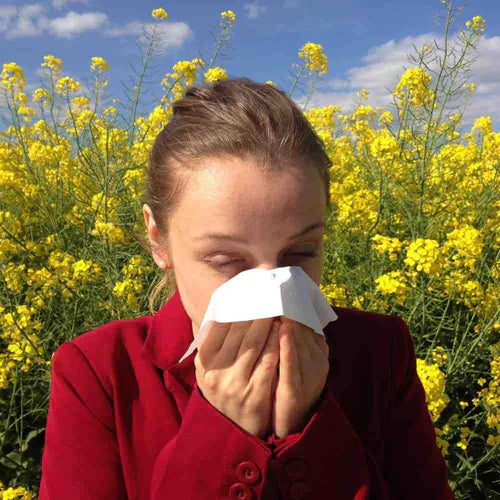Over the counter antihistamines are one way to combat allergy symptoms, but there are ways to fight them off that don't require a trip to the pharmacy. Certain teas and herbs have been shown to have properties that will help with relieving common allergy symptoms like sneezing, runny nose, and itchy eyes.
Fennel Seeds
Fennel is a natural antispasmodic, which is helpful when used with the intent of relieving allergies. The airway closes off or narrows, in many cases, due to excessive muscle spasm in the bronchial passages.
Licorice
Licorice has been used with effectiveness for thousands of years to treat a number of respiratory conditions. These conditions do include bronchitis, common cough, and asthma. The active natural chemicals present in licorice act as an anti-inflammatory and may effectively soothe swollen airways. It also may act as a histamine, which will inhibit coughing, making it easier to take deep breaths.
Green Tea
Tea is rich in antioxidants, and is a natural anti-inflammatory. One compound is quercetin, found in many leafy vegetables and also found in tea. It helps block the immune reactions caused by pollen, dust and animal hair.
Try: Green Tea Collection

Chamomile
Chamomile contains a high concentration of natural antihistamines, which fight off allergic reactions. Plus, it helps calm and relax you, especially if you want a good night's sleep.
Try: Chamomile Bilberry Bliss, Greek Mountain Meadow, Total Body

Peppermint
Tea containing peppermint acts as a decongestant. This mint will decrease the secretion of anti-inflammatory enzymes that are the root cause of allergic reactions.
Try: Peppermint, Sleep Tight, Belly Buddy

Turmeric
Enjoy an infused turmeric herbal tea to enjoy its anti-inflammatory benefits, as it's a natural antihistamine.

Ginger
Ginger has been shown to have tremendous health benefits. In the case of allergies, it has been shown to improve the effects of bronchodilators. While this means that it would improve the efficiency of the medications that are often used, it also means that natural treatments that act as bronchodilators are also positively affected by ginger. Additionally, ginger has antihistamine and can reduce inflammation of lung muscles and nasal mucosa.

Rooibos
This caffeine-free herbal helps block the release of histamines and helps to metabolize allergens.
Try: Rooibos Collection

Tea Recommendations
We listed 9 ingredients of herbal and green tea ingredients for allergies, but there are many blends that combine one or more of these ingredients into delicious herbal teas. We've listed our top teas at the bottom of this article. Green tea is a pretty broad group, so regardless if you choose a flavored or non-flavored green tea, they will have the same effect.
How much tea should I drink? How often?
We believe a minimum of 3 8oz cups should be consumed. Since green tea contains caffeine, drinking green tea hot or iced early to mid day is one recommendation. Then switching over to herbal later in the afternoon and enjoying a cup of caffeine free herbal before bed.
Because the compounds in tea are water soluble, you'll want to spread your consumption out over the course of the day to ensure more consistent relief from your allergy symptoms.









